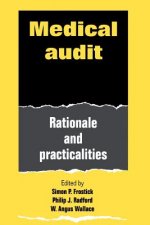
Kód: 01760903
The World of Ladoga
Autor Jukka Korpela
This book is one of he first to focus on Medieval and Early Modern state formation on the north-eastern periphery of Europe. Researchers have traditionally perceived an East-West conflict between Sweden and Novgorod concerning the ... celý popis
- Jazyk:
 Angličtina
Angličtina - Vazba: Brožovaná
- Počet stran: 400
Nakladatelství: LIT Verlag, 2008
- Více informací o knize

1017 Kč
Dostupnost:
50 % šance Máme informaci, že by titul mohl být dostupný. Na základě vaší objednávky se ho pokusíme do 6 týdnů zajistit.
Máme informaci, že by titul mohl být dostupný. Na základě vaší objednávky se ho pokusíme do 6 týdnů zajistit.Prohledáme celý svět
Mohlo by se vám také líbit
-

Medical Audit
3807 Kč -

Pity and Power in Ancient Athens
3951 Kč -

Building Europe on Expertise
2213 Kč -

Karl Hobrecker - ein deutscher Sammler
674 Kč
Dárkový poukaz: Radost zaručena
- Darujte poukaz v libovolné hodnotě a my se postaráme o zbytek.
- Poukaz se vztahuje na celou naši nabídku.
- Elektronický poukaz vytisknete z e-mailu a můžete ihned darovat.
- Platnost poukazu je 12 měsíců od data vystavení.
Informovat o naskladnění knihy
Zadejte do formuláře e-mailovou adresu a jakmile knihu naskladníme, zašleme vám o tom zprávu. Pohlídáme vše za vás.
Více informací o knize The World of Ladoga
Nákupem získáte 102 bodů
 Anotace knihy
Anotace knihy
This book is one of he first to focus on Medieval and Early Modern state formation on the north-eastern periphery of Europe. Researchers have traditionally perceived an East-West conflict between Sweden and Novgorod concerning the late medieval colonization of the northern forest areas, but it seems that the East Fennoscandian boreal forest zone was not an unpopulated area at that time, but was a landscape inhabited by heterogeneous hunting and fishing populations and possessing another kind of culture. The ways of life of these populations can be observed by coordinating various bodies of palaeoecological, palaeobotanic, genetic, meteorological, folkloristic, philological and archaeological material. The traditional written sources did not extend to this area, and its nature is only reflected in the expansion and organization of the European Christian culture and power, both Russian and Swedish. Also, the increasing number of source documents, the growing population as reflected in those written documents and the expansion of arable cultivation do not indicate any real colonization but simply a change of the existing economic system from a semi-nomadic hunting and fishing economy to a field-based agriculture in response to the expansion of regular taxation and state control. Seen from this perspective, the people who earlier were invisible gradually become visible in the sources. The East Fennoscandian boreal forest zone was a European periphery during the Viking Age, but was connected to the European exchange of goods through the same waterways that also brought the first Christian cultural impact. The European economic crisis of the 14^th Century nevertheless excluded the area from the late medieval process of state formation, and it became an object of both Muscovite and Swedish interests only after the end of the 15^th Century. This meant the formation of parishes, the organization of an early local administration with regular taxation, the permanent stationing of military forces, the establishment of a physical border, and the assimilation of the local people into European culture, accompanied by marginalization of the traditional forms of life.
 Parametry knihy
Parametry knihy
1017 Kč
- Plný název: The World of Ladoga
- Podnázev: Society, Trade, Transformation and State Building in the Eastern Fennoscandian Boreal Forest Zone c. 1000-1555
- Autor: Jukka Korpela
- Jazyk:
 Angličtina
Angličtina - Vazba: Brožovaná
- Počet stran: 400
- EAN: 9783825816339
- ID: 01760903
- Nakladatelství: LIT Verlag
- Hmotnost: 712 g
- Rozměry: 235 × 160 × 26 mm
- Rok vydání: 2008
Oblíbené z jiného soudku
-

Berserk Deluxe Volume 1
1033 Kč -

Haunting Adeline
617 Kč -

Berserk Deluxe Volume 2
1033 Kč -

Berserk Deluxe Volume 3
1138 Kč -

Atomic Habits
340 Kč -

Cry Baby Coloring Book
270 Kč -

House of Leaves
541 Kč -

Powerless
225 Kč -

Harry Potter and the Prisoner of Azkaban (Minalima Edition)
978 Kč -

The Official Stardew Valley Cookbook
607 Kč -

Chainsaw Man, Vol. 15
257 Kč -

Iron Flame
353 Kč -

Hunting Adeline
633 Kč -

Berserk Deluxe Volume 5
1115 Kč -

JUJUTSU KAISEN V22
257 Kč -

White Nights
90 Kč -

Gravity Falls Journal 3
462 Kč -

Berserk Deluxe Volume 4
1165 Kč -

Bungo Stray Dogs, Vol. 8 (light novel)
387 Kč -

Berserk Deluxe Volume 6
1086 Kč -

Twisted Love
215 Kč -

Surrounded by Idiots
256 Kč -

The 48 Laws of Power
523 Kč -

Twisted Games
276 Kč -

Twisted Lies
276 Kč -

Fourth Wing
214 Kč -

Heaven Official's Blessing: Tian Guan Ci Fu (Novel) Vol. 2
442 Kč -

Dune Messiah
178 Kč -

Court of Thorns and Roses Paperback Box Set (5 books)
1322 Kč -

A Little Life
258 Kč -

Heaven Official's Blessing: Tian Guan Ci Fu (Novel) Vol. 1
428 Kč -

CHAINSAW MAN V14
217 Kč -

Dune
254 Kč -

Dungeons & Dragons Essentials Kit (D&d Boxed Set)
626 Kč -

No Longer Human
259 Kč -

Berserk Deluxe Volume 10
1163 Kč -

Court of Thorns and Roses
218 Kč -

Court of Mist and Fury
221 Kč -

Harry Potter and the Chamber of Secrets: MinaLima Edition
835 Kč -

King of Sloth
276 Kč -

Raising Mentally Strong Kids: How to Combine the Power of Neuroscience with Love and Logic to Grow Confident, Kind, Responsible, and Resilient Child
593 Kč -

Heaven Official's Blessing: Tian Guan Ci Fu Vol. 4
441 Kč -

Icebreaker
254 Kč -

Berserk Deluxe Volume 7
1110 Kč -

The Husky and His White Cat Shizun: Erha He Ta de Bai Mao Shizun (Novel) Vol. 5
372 Kč -

Vagabond (VIZBIG Edition), Vol. 1
513 Kč -

48 Laws Of Power
372 Kč -

Berserk Deluxe Volume 11
1102 Kč -

Twisted Series 4-Book Boxed Set
1078 Kč
Osobní odběr Praha, Brno a 12903 dalších
Copyright ©2008-24 nejlevnejsi-knihy.cz Všechna práva vyhrazenaSoukromíCookies


 Vrácení do měsíce
Vrácení do měsíce 571 999 099 (8-15.30h)
571 999 099 (8-15.30h)